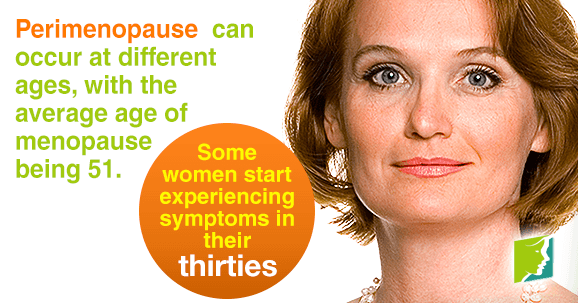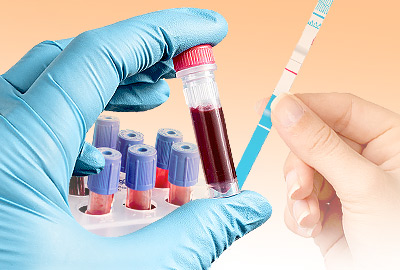Perimenopause refers to the years leading up to the natural transition to infertility, known as menopause. Estrogen is the primary female hormone that governs the reproductive system, and during this time, levels of estrogen begin to fluctuate and decrease. Thus, during perimenopause, women typically experience many unwanted symptoms. This stage lasts until you have gone 12 consecutive months without a period and have officially reached menopause.
How Long Does it Last?
Although the average length of perimenopause is four years, it is possible for it to last anywhere between two to ten years, with some women even experiencing symptoms indefinitely. It is impossible to predict with certainty how long this stage will last, as it will differ from woman to woman. The good news is though that there are various ways to reduce or eliminate certain symptoms, making the whole process more comfortable, regardless of how long it lasts.
When Does it Occur?
Perimenopause can occur at different ages, with the average age of menopause being 51. However, some women experience this transition in their forties or even later in their fifties. The normal window for transitioning through perimenopause though is 45 - 55. Early onset perimenopause is also possible, but this is uncommon.
What Are the Symptoms?
Perimenopause is the period in which symptoms will occur if the woman is to get any at all. Range and severity of these symptoms can vary depending on each woman, and can be caused by many factors including genetics, lifestyle, and diet. Some of the commonly reported symptoms are outlined below:
Irregular periods
The menstrual cycle is often the first thing to be affected by estrogen fluctuations. There might be a longer (or sometimes shorter) time between each period, or the flow could be lighter or heavier than what you normally experience. There could even be some months when no period occur at all. Although this is normally a natural symptom of perimenopause, it is important to see your doctor if any of these changes concern you, as changes to the menstrual cycle could be indicative of something else.
Hot flashes
Sudden, intense feelings of heat, followed by copious amounts of sweat production is an oft-reported perimenopausal side effect. This can lead to sleep problems or embarrassment.
Mood swings
Mood swings and irritability are a common complaint and can be caused by a myriad of factors, such as stress, hormonal imbalance, or even as the result of other perimenopausal symptoms (such as hot flashes or lack of sleep). A healthy diet and active lifestyle should decrease the risk of mood swings during perimenopause.
Vaginal dryness
Vaginal dryness occurs as a result of reduced lubrication, and vaginal walls becoming thinner. This can lead to soreness and painful intercourse. Water-based lubricants should help solve the problem.
Perimenopause is experienced differently by every woman, but should not be feared; it is a natural life stage, and the unpleasant side effects are manageable. An increase in fruit and vegetable intake and a good exercise regime should be the first recourse for every woman. Many women find this is enough to manage perimenopause. If your symptoms are severe though, it is a good idea to talk to your doctor as they can recommend treatments to complement a healthy lifestyle.
Sources
- National Institute on Aging. (2014). Menopause. Retrieved August 4, 2014, from http://www.nia.nih.gov/health/publication/menopause
- Office on Women's Health. (2010). Menopause Basics. Retrieved August 4, 2014, from http://www.womenshealth.gov/menopause/menopause-basics/




